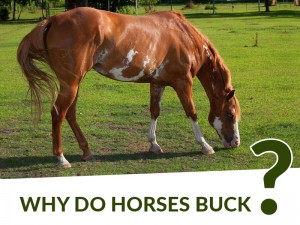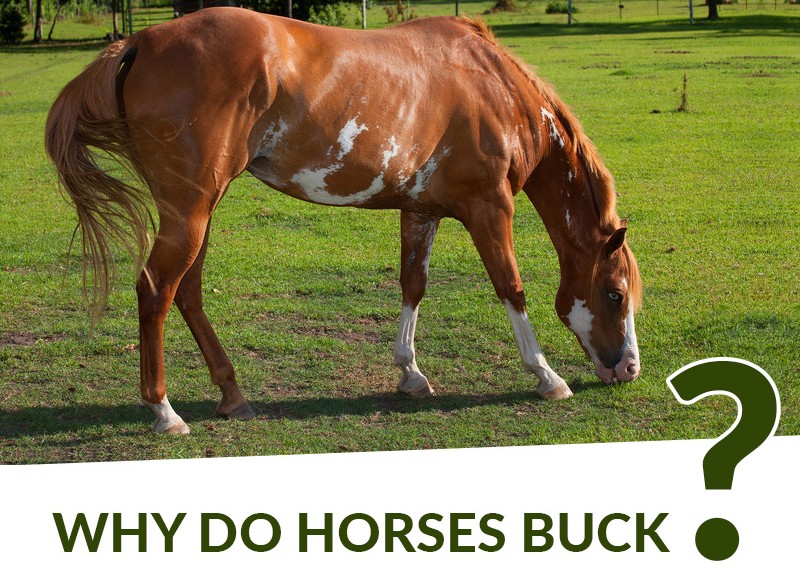
Although it can be very dangerous for riders, bucking is part of a horse’s natural behaviour and horses can do it for several reasons. Bucking is the word used to describe a horse’s kick with both hind legs at the same time.
The horse’s normal response to a threat is to flee or to fight if they are somehow unable to escape the situation. In the wild the best way to fight a potential predator is to kick it as hard as possible and the same applies when dealing with aggressive horses within their social group. Given the instinctive and defensive nature of this behaviour it is also not uncommon for horses to buck when they get scared, when they feel pain or when they are trying to get rid of an insect that is bothering them. Some horses are more prone to this behaviour that others.
Horses can also display this behaviour as a way to get rid of their excess energy, when they are feeling very excited, happy and playful. It is very likely for a horse to try to run, jump and buck if they have been kept in a stable for a long period of time.
On some occasions bucking can also be an acquired behaviour. Horses who are less motivated to work, who are feeling back pain or any sort of discomfort may buck more often in an attempt to simply remove the rider.
If you are struggling to deal with this behaviour make sure you check your horse’s tack and do not hesitate to seek veterinary advice to ensure that the problem is not just a behavioural issue. It is also worth reassessing your horse’s energy content of the feeding and exercise regime to better manage its energy. Increasing the horse’s amount of exercise or allowing for a horse to release some energy in a safe space before being ridden can help keep this behaviour under control.
Please keep in mind that a horse that started bucking due to pain may continue to buck in anticipation of feeling the same pain again even if the problem has been treated and the pain is gone. These cases require more patience and the horses will need to be encouraged to relax and to return to work gently and gradually.
Would you like to know more about horses? Check our Equine Courses:
